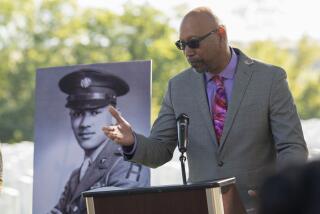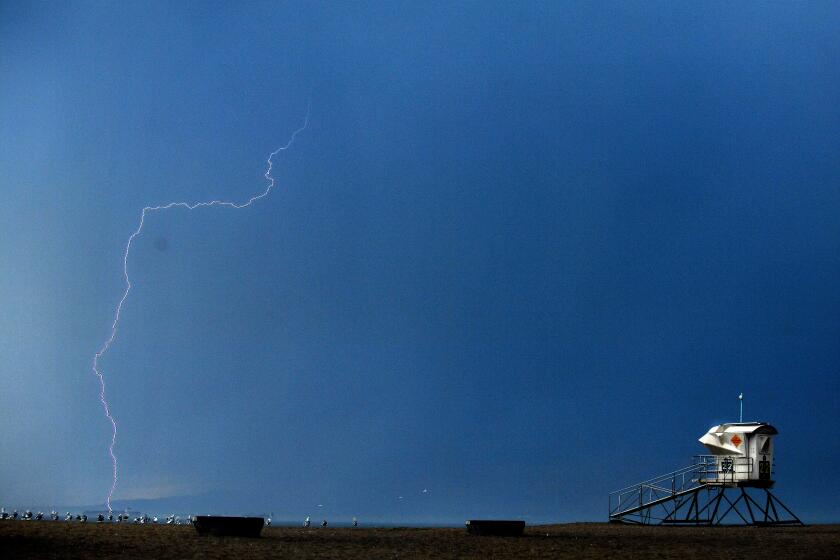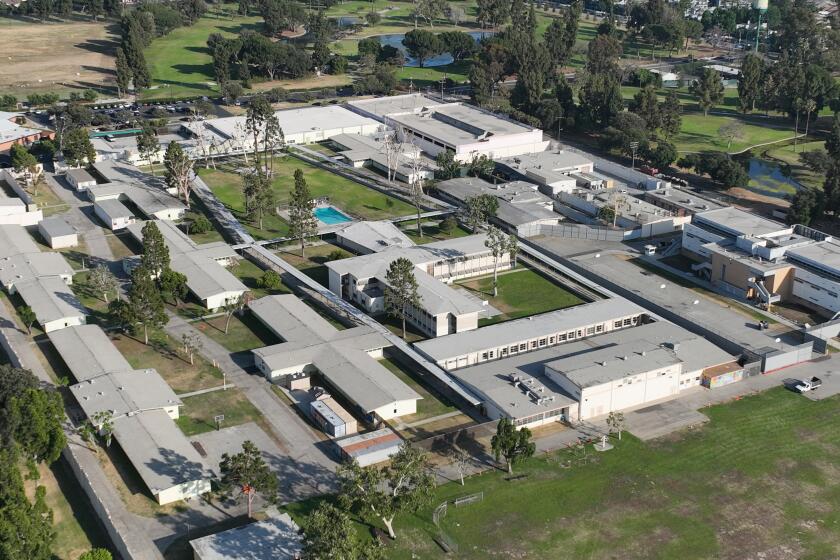In Dying, Colonel Broke a Promise to His Troops
- Share via
At a prayer breakfast in Baghdad last week, Col. William Wood tearfully promised soldiers in the California National Guard battalion that the killing and wounding of soldiers in his battered unit would come to an end.
No more soldier photographs, he pledged, would be added under his watch to the already crowded wall at Forward Operating Base Falcon where the battalion honors its dead.
Less than 48 hours later, the 44-year-old Wood died in a roadside bomb explosion when he came to the aid of a fallen comrade. He was the highest-ranking American officer to die since the war began.
Wood’s death and three others from the same unit last week added to the mounting woes of the Modesto-based 1st Battalion, 184th Infantry Regiment, which has been mired in controversy and misfortune since it began training in the New Mexico desert more than a year ago. The unit was sent to Iraq in January.
The battalion’s casualty rate, 11 killed and more than 100 wounded among its 700 troops, is one of the highest of National Guard units in Iraq.
Two days after the prayer breakfast, Capt. Michael MacKinnon, a regular Army officer brought in to command one company of Wood’s battalion, was on patrol in a treacherous area of southern Baghdad when a bomb exploded near his vehicle.
As MacKinnon, 30, lay mortally wounded, Wood rushed to his aid only to be killed when another bomb exploded. MacKinnon, a West Point graduate from Helena, Mont., died of his injuries at the Combat Support Hospital.
MacKinnon recently contributed a column to the company’s newsletter that is sent to family and friends. Despite the unit’s rocky recent history, Mackinnon said he had become attached to it. “I know there were a couple of months where the company had some troubles as a result of some isolated incidents,” he wrote. “I can assure you that this is something of the past. I can also tell you with absolute certainty that this company is back on its feet.”
In July, 12 soldiers from the battalion’s Fullerton-based Alpha Company were charged with misconduct for their alleged role in the abuse of Iraqi prisoners. Last month, U.S. military officials in Iraq announced that three sergeants have been imprisoned and four other soldiers sentenced to hard labor for their role in the incident in which a stun gun was used on handcuffed prisoners.
As a result of the prisoner abuse charges, battalion commander Lt. Col. Patrick Frey was replaced by Wood, a regular Army officer and native of the Florida panhandle.
According to one soldier attending the Oct. 25 prayer breakfast, Wood told the assembled battalion that he had come to the unit concerned about “the professionalism, talent and discipline of the officers and men.”
But after a month or so working with the soldiers, Wood said he came away impressed, noting that the unit had conducted 500 patrols, 19 raids and captured 79 suspected insurgents.
This was a better record than some of the much larger regular Army units in Iraq, Wood told the soldiers, declaring himself to be a proud “Nightstalker,” the battalion’s nickname.
Most of the battalion’s casualties, nine killed in action in the last six weeks, came under Wood’s command. All were from what military officials say are increasingly sophisticated roadside bombs known in the military as “improvised explosive devices.”
The deaths recalled the unit’s stormy training period in the New Mexico desert in the summer of 2004. Several soldiers participating in the training exercises complained to reporters about poor equipment and training, particularly in dealing with explosive devices.
The chief of the National Guard, Lt. Gen. H. Steven Blum, defended the training. Other soldiers blamed the complaints on a handful of misfits.
Wood, from Panama City, Fla., is survived by his wife, Nanci, and a daughter. MacKinnon is survived by his wife, Bethany Mayers, and two sons.
Just as the battalion was adjusting to the loss of two of its leaders, two more of the California unit’s soldiers died in a roadside bombing Saturday.
Killed were Capt. Raymond D. Hill, 39, of Turlock and Spc. Shakere Taffari Guy, 23, of Pomona. Their deaths came at the end of what had been the bloodiest month for U.S. troops since January and an increasingly deadly one for National Guard soldiers, who accounted for 20 of the 92 soldiers killed in October.
Hill, who in civilian life was a technician with the Modesto Irrigation District, was a graduate of Cal State Stanislaus and had been active in the Turlock 4H club for a number of years. He is survived by his wife, Dena, and two daughters.
Guy was born in Kingston, Jamaica, and lived in Pomona, where he worked in a Home Depot store. He is survived by a daughter and by his mother, Donna Sanguinette, and sister, Tracy Ann Smith, of Pomona.
The four soldiers were honored in a memorial service held Tuesday at Forward Operating Base Falcon.
According to a soldier attending the memorial, the new battalion commander replacing Wood, Lt. Col. Everett Knapp, noted that the four soldiers represented the diversity of the Army and the mix of active duty and reservists, military academy graduates and ROTC officers.
Wood was remembered as a Florida State University alumnus and supporter of the school’s Seminole football team. MacKinnon was recalled as a fierce competitor and devoted family man.
Hill, involved in numerous community activities back home in California, was remembered for the pleasure he took in distributing book bags and school supplies to Iraqi children. The scene of the explosion that took his life, the speaker noted, was littered with school supplies from his vehicle.
Guy was recalled as a devoted father who had been trained as a tank driver. The military notice of his memorial service said Guy had “a fondness for computers and enjoyed Southern California’s nightlife.”
More to Read
Sign up for Essential California
The most important California stories and recommendations in your inbox every morning.
You may occasionally receive promotional content from the Los Angeles Times.













